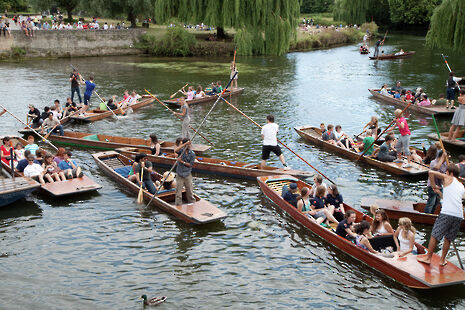Mixed league table results for Cambridge
The latest league table results are not as straightforward as they seem, with Cambridge both triumphing and slipping

Several new league tables have resulted in a mixed performance for Cambridge, as it defended its top position in a general table but fell to sixth place in another based on student satisfaction.
For the fourth consecutive year Cambridge has been ranked the best university in the UK by the Complete University Guide, based on categories such as entry standards, quality of research, graduate prospects and teaching standards, as well as the percentage of students completing their degrees.
Cambridge topped the table, leaving Oxford in second place, followed by the London School of Economics (LSE) and St. Andrews. In 29 out of the 46 subjects examined, Cambridge was also placed first in the national rankings.
By contrast, however, Cambridge dropped to sixth place in the latest Times Higher Education (THE) Student Experience survey, compared with fourth place in 2013. Students were asked to rate their university in 21 categories based around satisfaction, such as the general atmosphere in and around class, their social life, and whether they would recommend their university to a friend.
The University of Sheffield was ranked top out of 111 UK universities, with its students citing the ‘good social life’ and ‘good students’ union’ as major factors in their overall satisfaction. Oxford also dropped three places from the 2013 rankings to share fourth place with the University of Dundee.
A spokesman for the University of Cambridge, however, rejected the findings of the league table, citing the small sample size of the survey in which some universities had just 50 respondents. Although it has an undergraduate population of approximately 12,000 students, only 248 people participated in the survey. This small sample size was cited by the university as a reason for the shift in Cambridge’s position, especially considering the subjectivity of the topic.
“A total of 248 responses were received from Cambridge which has an undergraduate population alone of around 12,000. Given the tiny size of the sample it is not surprising that there might be fluctuations and shifts of position year on year especially on such a subjective topic.”
First year classicist at Clare College, Lydia Price, said she understood the drop in student satisfaction amongst Cambridge students based on her academic experience alone: “The university assumes too much about what the students know and how quickly they can retain that information.”
Cambridge’s mixed performance comes just a week after it rounded out the bottom of a league table commissioned by the think-tank CentreForum. It managed to place at 135 out of 153 universities based on the ‘Social Mobility Graduate Index’, which compared universities based on their graduate employment prospects, with greater weight given to students from disadvantaged backgrounds.
It is difficult to see whether these various league table results have an effect on applications. Cambridge reported a four per cent rise in applicants in October 2013, a total of over 16,500 students.
Homertonian mathematician James Parsons admitted that league tables did affect his application, although the reputation of Oxbridge was equally influential: “I did look at league tables when I was applying but I knew that Cambridge was the best for my course anyway … [but] if I hadn’t applied here I would have applied to Oxford based on its reputation, even though Warwick was ranked above it in league tables for Maths.”
 News / Fitz students face ‘massive invasion of privacy’ over messy rooms23 April 2024
News / Fitz students face ‘massive invasion of privacy’ over messy rooms23 April 2024 News / Climate activists smash windows of Cambridge Energy Institute22 April 2024
News / Climate activists smash windows of Cambridge Energy Institute22 April 2024 News / Copycat don caught again19 April 2024
News / Copycat don caught again19 April 2024 Comment / Gown vs town? Local investment plans must remember Cambridge is not just a university24 April 2024
Comment / Gown vs town? Local investment plans must remember Cambridge is not just a university24 April 2024 News / Cambridge University disables comments following Passover post backlash 24 April 2024
News / Cambridge University disables comments following Passover post backlash 24 April 2024





